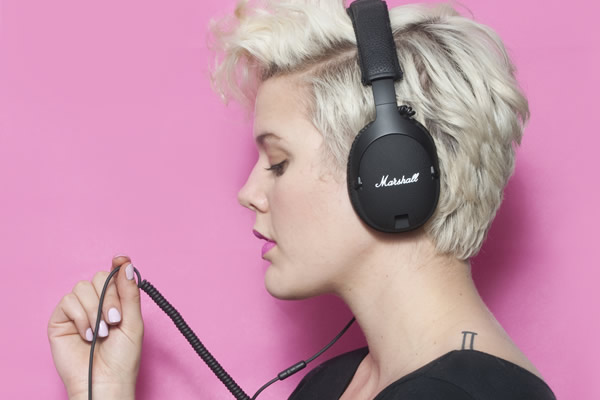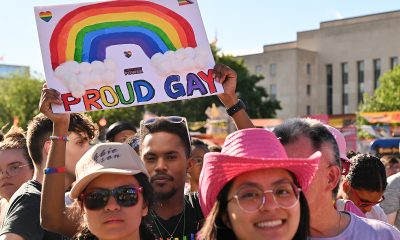a&e features
Main stage mayhem
This year’s headliners are up-and-coming hit makers

Capital Pride Festival
Capitol Main Stage
Pennsylvania Ave. between 3rd and 7th streets
Sunday
Noon-7 p.m.
Betty Who’s song “Somebody Loves You” went viral when it accompanied the YouTube video that featured a gay marriage proposal set to a flash mob in a Home Depot in Utah. The 22-year-old Aussie native has two EPs out and is working on her first full-length album.
Karmin is 28-year-old musical and personal partners Amy Heidemann and Nick Noonan known for their No. 1 Billboard Dance Chart hits “Brokenhearted” and “Hello.” Their debut album “Pulses” was released in March.
And Bonnnie McKee, 30, has written a monster string of hits for artists like Katy Perry, Britney Spears, Ke$ha, Christina Aguilera, Kelly Clarkson and more, eight of which have gone to No. 1. Last summer, her breezy song “American Girl” inspired a 7-Eleven-set video and she continues to work on a debut album.
They’re three of the acts headlining on the Capitol Stage at the Capital Pride Festival Sunday. We caught up with them by phone from Los Angeles — where all happened to be at the time — this week. Their comments have been slightly edited for length.
BETTY WHO
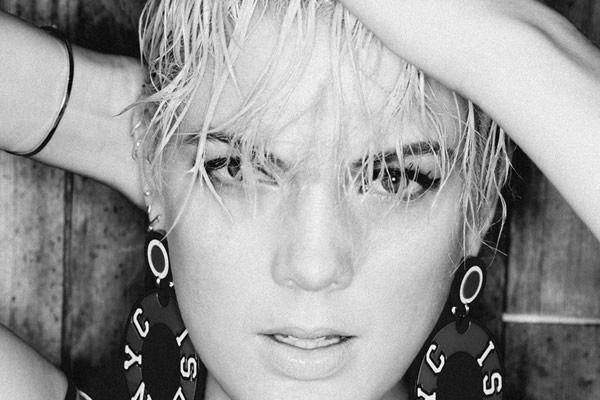
Betty Who (Photo by Shane McCauley)
WASHINGTON BLADE: Spencer and Dustin, the guys in the Home Depot video, said they wanted you to sing at their wedding? Has that happened yet?
BETTY WHO: Yes, I sang at their wedding in Utah in February and it was like the most perfect, beautiful day of my life. I can’t imagine my own wedding being any more perfect.
BLADE: How did you feel when they asked you?
BETTY: They are the most sweet, amazing men in the world. It was just one of those days where I thought, “I could not be doing anything better with my time. My boyfriend played guitar for me so it was kind of very sweet the two of us. I sang an acoustic version of “Somebody Loves You” as their moms walked them down the aisle so it was kind of this beautiful small moment in time.
BLADE: How did it come about that you developed such a strong gay fan base?
BETTY: I’ve always been supportive, but you know, I didn’t set out initially to have that as part of my platform, though I always knew I would support gay rights. It just so happened when I put out my first EP, that the first few bloggers who picked up on it were these gay pop music blogs in New York, so it kind of worked out perfectly that my biggest demographic is LGBT. I’ve just spoken up for what I feel is right.
BLADE: Did you know gay people growing up?
BETTY: Our next door neighbor was my mom’s best gay friend and his partner, so I have definitely been surrounded by a very kind of wholesome and well-rounded community my whole life and it’s always been this wonderful thing, gay, straight, bisexual, transgender, whoever it was, it didn’t really matter. I was never taught to think of anybody differently. Then I got a little older and I had friends who came from very conservative backgrounds and I was confused as to why they thought that being gay made you different. I just didn’t get it. It was funny, it wasn’t about becoming open minded but putting myself in the shoes of people who were less open minded and going, “Oh, like not as everybody was as lucky as me to have this great experience and this really kind of you know urban community I guess. I grew up in the middle of Sydney, so I had always been around everybody.
BLADE: Have you done many Pride festivals?
BETTY: This will be one of the first ones. I’m doing this little tour through June called the “Hopeless Romantic Tour” and I think something like 80 percent of the shows are Pride festivals. It will definitely be very fun and wonderful and drunk, I imagine. I play Los Angeles, then Salt Lake City, then D.C. on Sunday. So that will be my first one on Friday.
BLADE: Do you know how long your set will be?
BETTY: I’m not sure. I think maybe 30 or 45 minutes.
BLADE: You mentioned singing at the wedding with your boyfriend. Is that Peter Thomas, your collaborator or someone else?
BETTY: No, people ask me that all the time. He’s a good friend, but this is somebody else.
BLADE: Often you don’t really hear accents much from British and Australian singers. In your songs, your accent is there. Is that a conscious choice?
BETTY: It was definitely a choice because I think even Adele sometimes, she sings and you don’t hear her accent. So much about being a star today or a popular artist in the industry is about dong what makes you different and what makes you special and to me I always thought being Australian was something that definitely made me different. And I never wanted to suppress that part of who I am and where I came from.
BLADE: I know you’ve been in the U.S. since you were a teen so you may not know, but do you think it would have been harder to break a pop career in Australia than in the U.S.?
BETTY: I think being a really famous person in Australia is actually much harder than to come over to America and make a go of it. I remember all of these really famous and beautiful singer/songwriters that I loved growing up and then I came over to America, only a handful of my friends knew about them. I thought, “What do you mean she’s like the most famous person in Australia, what do you mean you don’t know who she is?” So I think because it might be different now because the internet has made such a difference. Spotify wasn’t really a thing and Pandora was just sort of starting to be popular, so I think that it’s probably a little bit different. It looks easier and made more sense for me to start my career from the ground up in New York and have my biggest demographic of fans be there.
BLADE: Did you and Peter realize you had musical chemistry immediately?
BETTY: I think he and I have always been musical soul mates. When we met we were like, “Oh My gosh, we like all the same music, this is perfect.” Surely we knew as friends and creative partners we knew we would be great together. I remember being at a party at his house and he was in charge of the playlist and I was like, “Every song on this is a smash. …Who is this person, we are destined to be musical friends,” and it ended up being Peter. So I think that was really easy and was very immediate but it took us almost three years to write music that we knew was perfect or to get it to a point where we didn’t think, “Oh, we should keep rewriting it.” When we wrote “The Movement” EP, that was the first body of work that we put together and said, “Oh my gosh, this is it, this is how we meant to do it,” all of that. I think in that process we had been working together three years.
BLADE: When you get to that point and find pop songs that work, do you feel you’ve cracked a code in a sense?
BETTY: I think it is kind of like we cracked a musical code. We had been writing an working together so long that at some point you just work together so well and you understand each other so well and so deeply that you are like, “We have to put this here, that worked on this song so it will work here.” …When we’re writing a song now, if there’s something that’s not working, we can say exactly why it’s not working. And what we need to change, or if it’s going really well we know why and we know how to keep it going.
BLADE: Do you still play cello?
BETTY: I do, but not in public. Just kind of on my own in my bedroom.
BLADE: Did you initially plan a classical career?
BETTY: I was at a classical high school Interlochen Center for the Arts in Michigan and when I left I had only applied to colleges for voice and songwriting. So I knew when I was leaving I wanted to go into pop, but it definitely took me a second to kind of get out of that mind frame. Because I remember my first two semesters at Berklee (College of Music in Boston), I performed more playing cello for other people than I did singing my own stuff. So it took me kind of about a year at Berklee to figure out I definitely didn’t want to keep playing cello for other people and I definitely want to be singing on my own and doing that.
BLADE: Are you planning a full-length album?
BETTY: Yes, I am currently working on it actually. We hope to have it out sometime in the fall.
BLADE: Was “Somebody Loves You” particularly hard to write?
BETTY: The verses and chorus were done, like, in a night. But we didn’t have a bridge. I didn’t worry about it. We were in the middle of a semester and we didn’t have anything out, nobody knew who I was, so I took a break from it for a couple months. We had written it in, like, February, then when we went to record it in summer, I remembered, “Oh, I need to sit down and write this bridge” and I wrote it in like 10 minutes. …I think because we gave it so much space, the song as a whole kind of just worked because there was no pressure. But it wasn’t ’til we recorded it that we were like, “Oh fuck, this is amazing and we love it and feel really passionately about it.”
BLADE: You’re straight, right?
BETTY: Yes
BLADE: Do you have a gay best friend?
BETTY: Several, from all walks of life. My gay friend from college, from high school, from childhood. I kind of have a bunch of gay friends that have kind of all come to know and love each other which is perfect.
BLADE: Is Peter straight?
BETTY: Yes, to the dismay of many of gay best friends.
BLADE: Is your family mostly here in the U.S.?
BETTY: It’s kind of split. My mom is American and my dad is Australian so my dad’s whole side is there but he and my mom and her side are all in America.
KARMIN
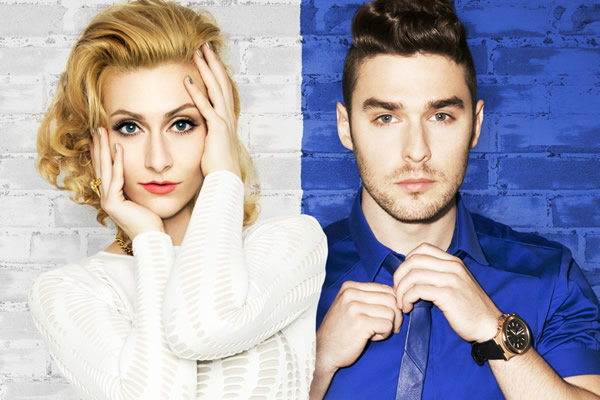
Amy Heidemann and Nick Noonan of Karmin. (Photo courtesy of Epic Publicity)
BLADE: How long have you been rapping, Amy?
AMY HEIDEMANN: I want to say I’ve been free styling on the streets of Nebraska since I was a little girl, but that’s not the case at all. I was raised in a super Christian household so I wasn’t allowed to listen to most rap music that I love today, but I was able to sneak you know a couple burned CDs I got from school from my classmates. So I did learn to rap sort of on accident. I was practicing to be a singer and the rapping came later.
BLADE: You two met at Berklee (College of Music in Boston)?
NICK NOONAN: Yes.
BLADE: Were you planning a pop career then?
NOONAN: We were kind of all over the place. I was originally a jazz trombone player, believe it or not.
HEIDEMANN: I always had dreams of being an R&B superstar. My favorite singer growing up was Brandy. We started out more indie and kind of hipster when we were doing the covers and the pop thing just sort of happened. I don’t know if it was really intentional, but it’s been awesome.
BLADE: But do people go to school to study pop music?
HEIDEMANN: Actually it’s weird because at Berklee they kind of do. There aren’t many schools like it, maybe one in California. But yeah, like, they have hip-hop classes. I think the place Jessie J and Adele went to in London I think is really comparable.
BLADE: Did you immediately realize your musical camaraderie?
NOONAN: No, it took a minute. We were both doing music independently from each other and then after we graduated we decided to start the group.
HEIDEMANN: We literally had to learn new instruments.
NOONAN: Yeah, Amy started to rap and I started playing piano and she was playing guitar. It kind of started from the bottom up.
BLADE: Did you start dating first or making music together?
NOONAN: Dating.
HEIDEMANN: Yeah, dating three or four years before.
BLADE: What’s your current relationship status?
NOONAN: We’re still engaged and trying to figure out the marriage thing.
BLADE: Are you concerned that if things continue going well for you musically, there could be a Fleetwood Mac-type impassion on the personal front or are you far enough into it now to not worry about that?
NOONAN: That’s always kind of on our minds but honestly we’d been dating and knew each other so well before we got any attention that it was kind of like all the skeletons were out of the closet before. So there really isn’t much to hide anymore.
BLADE: “Brokenhearted” and “Hello” were both No. 1 dance hits. Did you realize you were onto something writing them as opposed to other songs?
NOONAN: We did know pretty early on. Even with the covers, the strongest thing for us is playing live, so we knew that if we had some kind of energy, some feeling to get behind and get on stage and play this, there are certain songs that have an energy there and really translate well live and that’s our biggest thing. We wanted to make sure that those songs had those elements. When it feels really good, feels right, usually those write themselves and they are a lot faster to write.
BLADE: Did you realize early on you had a strong LGBT following?
HEIDEMANN: Yeah, it was pretty early. I used to put the covers up and we used to read every single comment, which can be really bad because people can be super mean. But the gay audience early on, there was a lot of guys who were commenting on Nick’s attractiveness. We were kind of like, “Oh, this is awesome.”
NOONAN: We have a very theatrical performance style, there were kind of a lot of elements. We didn’t really go out trying to say, “OK, we’re going to go get the gays,” but it made sense and we started doing a lot of Pride festivals and you know how we feel about everything, it’s more of a civil rights issue for us. So it kind of just made sense.
HEIDEMANN: And those are the best shows. So we were kind of like, “Why are we wasting our time playing anywhere else?”
BLADE: People are more relaxed at Pride events?
NOONAN: It’s just a completely different freedom and we’re able to feel that on stage, so they’re great shows.
BLADE: How so?
NOONAN: More celebratory, probably. The energy is more …
HEIDEMANN: Free
NOONAN: Free, I guess. We just did our first headlining tour and there actually was a lot of energy, we were kind of blown away, but still the Pride festivals, even if they didn’t know who we are, or people say, “I never heard of you before today,” they’re still — they want to love us, you know what I mean? That’s a very cool energy.
BLADE: How long will your set be at Capital Pride?
NOONAN: I don’t know. If it was up to us, it would be about 75 minutes, but I think we’re told maybe 30 or 40. So I don’t know.
BLADE: Your act obviously has gay sensibility. Was that something natural from your personalities, fashion sense and all that or did you play it up more when you started realizing you had gay fans?
HEIDEMANN: Definitely the first thing you said. Like I said, we had no idea that would be who we attracted, but that’s how we’ve been in our blood, in our veins, I’m very theatrical in my style. Fashion is incredibly important to me. We have this monochromatic thing. Even when you walk in our closet, it’s like a rainbow. Everything is organized by color so we didn’t really see it coming, but it’s the perfect fit, so it’s all worked out great.
BLADE: Why do you think LGBT rights are important?
NOONAN: Being gay is not new. it’s been around since the beginning of recorded history. It’s just a natural thing for us. Just kind of how we were raised and stuff to not see race or difference in religion to see people. … We really try to not have any of that stuff in our brains at all. … It’s crazy and very very cool how far it’s come in the last 10 years.
HEIDEMANN: Even four years ago. In my high school, there was only one guy who was semi-out. And it was like this huge taboo thing. I’m from the midwest. So it was super religious and pretty scary. I had a family member who came out recently and it was a struggle. So it is personal to us, but also exciting to be part of such an important part of history. And I know we’re going to be looking back and telling our kids about it and they’ll be like, “Really? Why would you ever discriminate against anyone?”
BLADE: You were born just a few days apart. Is there any astrological significance to that or is it just a random factoid?
NOONAN: It’s funny because we just went to an astrologer like last week. But we won’t go into that. We are both Tauruses, so there’s a lot of creativity but also a lot of stubbornness. Usually we get along very well, but when we butt heads, it’s like a colossal shitstorm.
BLADE: You said your parents were conservative, Amy. How are they now with what you’re doing?
HEIDEMANN: My parents are strict but they’re much better now. I know at the beginning it was a little stressful being from a little small town of 7,000 people, everybody is constantly asking about us, my parents are very protective and sometimes really worried about the stuff we encounter, but it’s getting easier. For a long time, it was hard for them to read like critical reviews of our music but it’s starting to become more of the norm I guess.
BLADE: Now that you’ve had a few hits, what’s your opinion of what it takes to break through on the U.S. pop landscape?
NOONAN: It’s mainly persistence. You look at the people now who are superstars, Lady Gaga, Katy Perry, they bounced around from label to label for years before they had any success so persistence is definitely one of the biggest things. It is not the most talented people, it is not the best singers. It can help you for sure, but it does not guarantee you a damn thing. So that’s one of the things about the industry, you know, for us. We’re just now starting to semi hit our stride.
BLADE: I know your album is still pretty new. What’s next for you? More singles from that? What will you be doing the rest of the summer?
NOONAN: We’ll hopefully have more information for you soon but we’re always kind of writing and working on new music and obviously touring a lot.
HEIDEMANN: The album just came out and then we went on tour really quickly so it’s all really still fresh for us. There had been a lot of delays with the record label.
BLADE: Is your appearance at Capital Pride a one-off or are you playing a couple Prides this year?
HEIDEMANN: We’ll be with you guys, then a couple dates in the midwest, then we’ll come back. It’s like a week-long mini-tour.
BLADE: Was there a tradeoff in signing with a major label?
NOONAN: It’s difficult, definitely.
BLADE: How so?
NOONAN: Just getting everybody on the same page.
HEIDEMANN: There’s a lot of turnover. You’ll work with a lot of different people, then they might move on to another company.
NOONAN: Differences of opinion. We’re not big fans of art created by committee.
BONNIE McKEE
BLADE: You just toured with Karmin this year, right?
McKEE: Yes, I’m excited to be reunited with them again. We did five weeks together and it was amazing. So much fun. They’re a really fun act and they have a great audience.
BLADE: Did you get to hang out much on the road?
McKEE: I knew them before. We had written songs together and we’re label mates, so it was fun.
BLADE: Was the “American Girl” video really shot in a 7-Eleven?
McKEE: It was actually an AMPM, but it was a quickie mart. We wanted to give some love to 7-Eleven, but they weren’t with me on that.
BLADE: You didn’t have to get permission to use Slurpee in the song?
McKEE: I never got a call about that.
BLADE: Obviously I know you could be playing a character in a video or even if it’s you, that’s not your entire persona, but the video presents you as this carefree girl sunbathing, changing clothes in a car wash and so on. Yet being a pop singer takes enormous work and discipline. Does your real life feel removed from that girl?
McKEE: I’ve been trying to take more time for myself recently. When you’re on tour, yeah, it’s a blast of course, but it’s also a lot of hard work. I’m trying to let myself be a little more carefree like the girl in the video.
BLADE: There was talk of you having an album out this spring. The first single was out last summer. What’s the status of that?
McKEE: Well, I want to do some more visual stuff. I’ve made a couple videos, I just put a single on iTunes and I’m also trying to sell “Sleepwalker” which I never officially put out. …So I don’t know when it’s going to happen. It’s all about timing, so when we get it set up properly, it will be out. I’m really a visual artist, so I think videos are really my sweet spot.
BLADE: Has there been label pressure to have a decent hit before putting the album out?
McKEE: It’s really up to them. I’m just showing up and playing for the people who want to hear me play. They’ll figure it out when they’re ready.
BLADE: How did you meet Katy Perry?
McKEE: At a thrift store in Los Angeles. We were both trying to sell our clothes and being rejected, so we kind of bonded over that and we’ve been friends ever since.
BLADE: When was that?
McKEE: Oh, maybe 10 years ago.
BLADE: When you write together, do actually sit down together or just send ideas back and forth?
McKEE: We it down in the room together, do a lot of spooning. We get in a bean bag chair together and kind of hash it out. We fight a lot over every line but that’s what makes it great. She’s a perfectionist and so am I.
BLADE: You’re friends too? You hang out?
McKEE: Yeah, when there’s time and if we happen to be in the same city, definitely. She always has extravagant birthday parties.
BLADE: Has your classical training growing up come in handy in the stuff you do now, like with knowing chord progressions and stuff like that, or is it apples and oranges musically?
McKEE? Really grateful to have the training I have but it doesn’t help much. I think the only way it really comes into play in my pop songwriting is, you know, keeping my voice healthy and knowing how to sing properly and not injure myself. That was the most valuable thing I learned. And also work ethic. It was just drilled into us in a world class choir. We were yelled at a lot. Really prepared me for real life.
BLADE: Some of the other acts who’ll be at Capital Pride who are eking out pop careers also had classical training. Do you think that’s just a coincidence or does the general rigidity of classical music make some people want to bust out and go crazy with fun pop stuff?
McKEE: I don’t know. Maybe the ones that are have had training, but so many just have the natural instinct and never had a lesson in their life.
BLADE: Did you always love pop music?
McKEE: Yes, always. I used to get in trouble because I’d have a solo and I’d sing it in a completely pop voice and they said, “You can’t sing like that in choir.” Well, why not? I didn’t know I was a pop singer until people started telling me that.
BLADE: Who were your favorite singers when you were 13, 14 or 15?
McKEE: I loved Whitney Houston, Fiona Apple. Mariah Carey of course. I really liked the divas. And Carole King. She was kind of the first person where I realized songwriting was something you could make a living doing and how important it is for the message to be coming from the artist.
BLADE: You identify as bi, right?
McKEE: Yes
BLADE: At the moment, though, you’re dating a man?
McKEE: Well up until a few years ago. I’m not seeing anyone now.
BLADE: Do people ever accuse you of saying you’re bi just to have street cred or something or do they take it seriously?
McKEE: I think it’s ridiculous. Do I have to prove to everyone that I’m bisexual? They want me to make out with girls publicly to prove it? That’s something I identified as when I was 12 years ago and I don’t feel I need to prove that to anybody. If I meet a girl I love, great. If I meet a boy I love, that’s great too.
BLADE: What do you have planned for D.C.?
McKEE: We get in kind of late the day before, unfortunately. I wanted to go to see all the monuments but I don’t know if we’ll have time for that. But I’m really psyched for Pride.
BLADE: You have a strong gay following?
McKEE: Yes, more than anybody else to be honest. I love it. I play a lot of gay clubs on tour. We did a lot of drag shows which are fun. Everyone there can just be themselves and that’s what I’m all about.
BLADE: Your hair is always these wild, great colors, but they tend to fade so fast. Do you have to constantly have it redone?
McKEE: Yeah, well luckily my friend is a hairdresser, I do it about every two and a half weeks but yeah, if you’re going to have crazy color, you have to — it’s a commitment for sure.
BLADE: Do you have times where you let it go more, like if you’ll be in the studio for awhile and not making as many public appearances?
McKEE: Oh, never! Never, no. I always keep it fabulous.
BLADE: Your publicist said you’re en route to the studio today. What are you working on?
McKEE: I’m writing a song for a movie but I can’t really talk about it yet. But it’s a song for a musical, which is fun. I’m looking forward to it.
BLADE: Why are gay rights important to you?
McKEE: It’s important for everybody to have a place where they can go and be themselves and celebrate themselves. I’m really grateful and excited to be part of that and to be in D.C. for that.
a&e features
Have yourself a merry John Waters Christmas
Annual holiday show returns to Alexandria and Baltimore
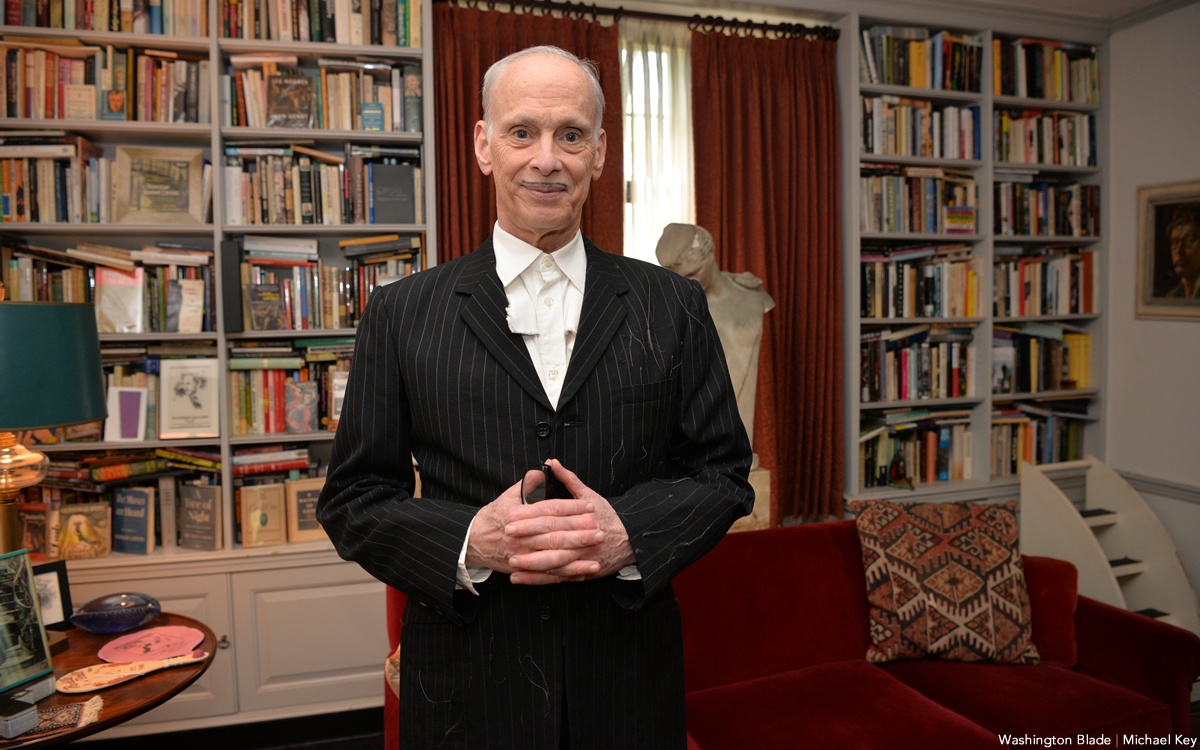
When it comes to iconic Christmas scenes in movies, none can top the tree-toppling tantrum thrown by cha-cha heels-deprived Dawn Davenport in John Waters’s fifth full-length feature “Female Trouble” from 1974. Therefore, it’s not surprising that Waters continues to make art out of Christmas, performing his spoken word Christmas tour in cities across the country. Waters has even more reason to celebrate with the release of his new red vinyl 7” single, a cover of Little Cindy’s “Happy Birthday Jesus (A Child’s Prayer)” on the A-side, and “A Pig Latin Visit From St. Nicholas” on the B-side. If you’re still looking for unique Christmas gifts, consider this record. As always, John was kind enough to make time for an interview in advance of his tour dates.
BLADE: John, in preparation for this interview with you, I went back and listened to Little Cindy’s original rendition of “Happy Birthday Jesus (A Child’s Prayer)” on your “A John Waters Christmas” CD.
JOHN WATERS: One thing I did, if you notice, I make the same stumble in my recording that she did in the original.
BLADE: It sounded to me like she got choked up.
WATERS: No, I think she just stumbles over a word, so I stumbled over the same word. It’s appropriation, insanely.
BLADE: Is this a song you first became aware of in your youth or when you were an adult?
WATERS: When I was doing the Christmas album, I had this friend named Larry Benicewicz. He was kind of my idea man with music. He knew every single old record. I would say to him, “Weird Christmas songs,” when we were doing a soundtrack, or a song about bears, or a song about this, and he would give me all these tapes. It was one of the ones he played for me. A lot of the songs I put in my movies and on my records, I did know as a kid. I did not know this one, but I immediately embraced it. I don’t think it’s campy. I think it really is spiritual in a weird way. My doing it makes it a novelty record. I am really for novelty records, and there aren’t any anymore. Why was there not a COVID novelty record? That’s insane. The dance “The Bug” that’s on the “Hairspray” soundtrack would be perfect for COVID.
BLADE: The thing that struck me was that for a Christmas song in the voice of a child, a kind of death pall hangs over it, with lines like, “If I was good you’d let me live with you” and “they nailed you to the cross, they wanted you to die.”
WATERS: All of it! When I see children at midnight mass kneeling in front of a nude man nailed to a cross, I feel like I’m at The Eagle! It is S&M, it’s creepy. I took the same cover (photo) from her record to parody and put my face on it. The same thing I did with The Singing Dogs last year when I covered (their version of) “Jingle Bells.” I’m really into novelty records. I love them and I’m trying to bring them back. I don’t expect anybody to ever play these records. Even The Singing Dogs one said on it, “Please do not play this record” [laughs]. And the flipside, the Pig Latin version, is almost impossible to listen to.
BLADE: I’m so glad you mentioned that. “A Pig Latin Visit From St. Nicholas” reminded me of the lost art of speaking in Pig Latin. I also recall watching the PBS series “Zoom” as an adolescent and learning to speak “ubbi dubbi,” a distant relative of Pig Latin. Do you think that the time is right for a Pig Latin or ubbi dubbi revival?
WATERS: Here’s the thing, I never could pick up any language, except Pig Latin. I’ve been in every foreign country. Foreign countries have given me money to learn to speak the language. I can never do it! But Pig Latin…my parents and other parents in the ‘50s spoke Pig Latin so kids couldn’t understand what they were saying. Then my mother taught it to me, and I used it. The hardest take to shoot in “Pink Flamingos” was not eating the dog shit. It was when the cast skipped, in one take, saying “E-way, are-yay e-they ilthiest-fay eople-pay in-hay e-they ole-hay ide-way orld-way.” We’re the filthiest people in the whole wide world in Pig Latin. We had to do so many takes so they could do it once without screwing it up. In “Polyester,” Edith (Massey) answers the phone, “ello-hay.” I did a photo piece where it was all subtitled in Pig Latin. Like “osebud-Ray” (from “Citizen Kane”) or in “Streetcar,” “ella-Stay!” [Laughs] All the iconic dialogue translated into Pig Latin. My assistant who helped me do it, had never heard of Pig Latin. She really got good at it because she lived in many foreign countries and can pick up languages. But it’s not that easy to do it correctly and read it. Your computer will translate into Pig Latin.
BLADE: AI understands Pig Latin?
WATERS: I guess that’s AI. It wasn’t 100% right, but it was close. I can speak it if I look at it, but just do a bit at a time. It was a challenge that no one would possibly care about or want to do.
BLADE: I think you pulled it off very well.
WATERS: If you want people to leave on Christmas morning, you put it on. That’s how you get your guests to leave. It’s time to go.
BLADE: Ood-gay i-bay! How did your relationship with record label Sub Pop, which released 2021, 2022, 2024, and new 2025 holiday singles, come about?
WATERS: I believe the first thing I did for them was “Prayer to Pasolini.” They came to me through Ian Brennan. He’s won a couple Grammys for World Music, but he is also is one of my agents who does the Christmas tour and a lot of my shows, anything with music. He helped me arrange each one of the songs. He had a relationship with Sub Pop. It was perfect. My friends in Baltimore, (the band) Beach House, have had huge success.
BLADE: That’s right, they’re on Sub Pop!
WATERS: Yes! I’m happy to be on it. I’ve even been to the warehouse and posed for pictures like Jackie Suzanne used to do.
BLADE: Is there any chance that “A John Waters Christmas” might be reissued on vinyl by Sub Pop?
WATERS: No. It’s such a nightmare to get the rights and to renew them. You have to find the publisher and the writer, and they usually hate each other. It doesn’t matter if it’s obscure or famous, it’s hard to get. You have to make the deal. The singer doesn’t get anything unless they play it on the radio. It would be so complicated legally, and there would be such a [laughs] tiny audience for it. I hope it will come out again. The same thing with the one for Valentine’s Day. I had two of them that did quite well when they came out; “A Date With John Waters and “A John Waters Christmas.” The “John Waters Christmas” album is still the soundtrack that plays whenever I’m doing my spoken word Christmas show as people are entering the theater.
BLADE: Aside from your annual Christmas show tour, what else do you do for the holidays now, and are there any traditions that you’ve carried over from your family?
WATERS: Certainly! I have two sisters, my brother’s widow, and me, so there are four and we take turns each year to have the Christmas dinner. Mine was last year. An entire sit-down dinner. Mom’s China, the silverware, the entire full dinner. It’s pretty traditional. I don’t have a Christmas tree, but I do decorate the electric chair from “Female Trouble.” That is a tradition in my family. We do have Christmas decorations, but they’re usually weird ones that fans sent me. I have one with Divine knocking over the Christmas tree, and the Christmas tree lights up, all sorts of amazing things. There is definitely a tradition here that might be a little altered, but it is definitely a tradition. I used to have a giant party every year, but COVID ended that. I still wouldn’t want 200 people in my house breathing right now.
BLADE: I was looking at your tour schedule and wondered if there are any new cities in which you’ve never performed the John Waters Christmas show that have been added to this year’s schedule?
WATERS: I don’t think there’s a city in America in which I haven’t done one show! The only places I haven’t been to are Hawaii and Alaska. I could do it there, but it’s too long on a tour. I can’t think of a city I haven’t played in in America over the last 50 years. The Christmas show is completely different every year. It doesn’t matter if you saw it last year.
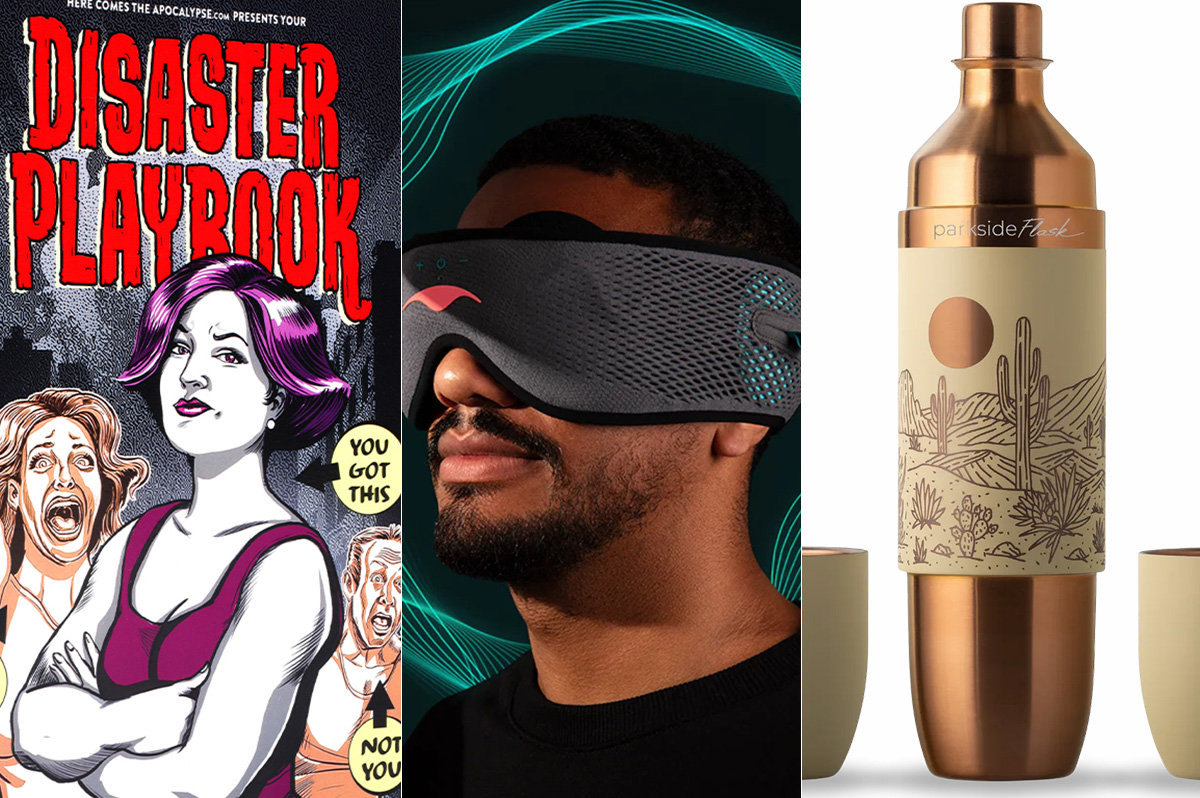
Some gifts scream practical, others whisper luxury, and a few flat-out blur the lines. From cocoa that feels ceremonial to a cologne that linger like a suggestive smirk, this year’s ultimate gift picks prove that thoughtful (and occasionally naughty) presents don’t have to be prosaic. Welcome to your holiday cheat sheet for festive tangibles that get noticed, remembered, and maybe even result in a peck of gratitude planted under the mistletoe. Consensually, of course.
Amber Glass Champagne Flutes
Pop the champs – but make it vintage. These tulip-shaped stunners in amber-tinted glass bring all the Gatsby vibes without the Jazz-age drama. Whether you’re toasting a milestone or celebrating a Tuesday, their seven-ounce capacities and hand-wash-only care make ‘em as practical as they are pretty. Pair with a thoughtful bottle of bubs and gift with a glittering wink. $18, NantucketLooms.com
Disaster Playbook by Here Comes the Apocalypse
Because the end of the world shouldn’t be a solo act, this spiral-bound guide is your step-by-step roadmap to surviving and thriving when everything else goes sideways, which might be sooner than you think. Packed with checklists, drills, and a healthy dose of humor, it’s like a survival manual written by your most prepared (and slightly snarky) friend. Whether you’re prepping for a zombie apocalypse or, more realistically, REVOLUTION!, this playbook’s got your back. $40, HereComesTheApocalypse.com
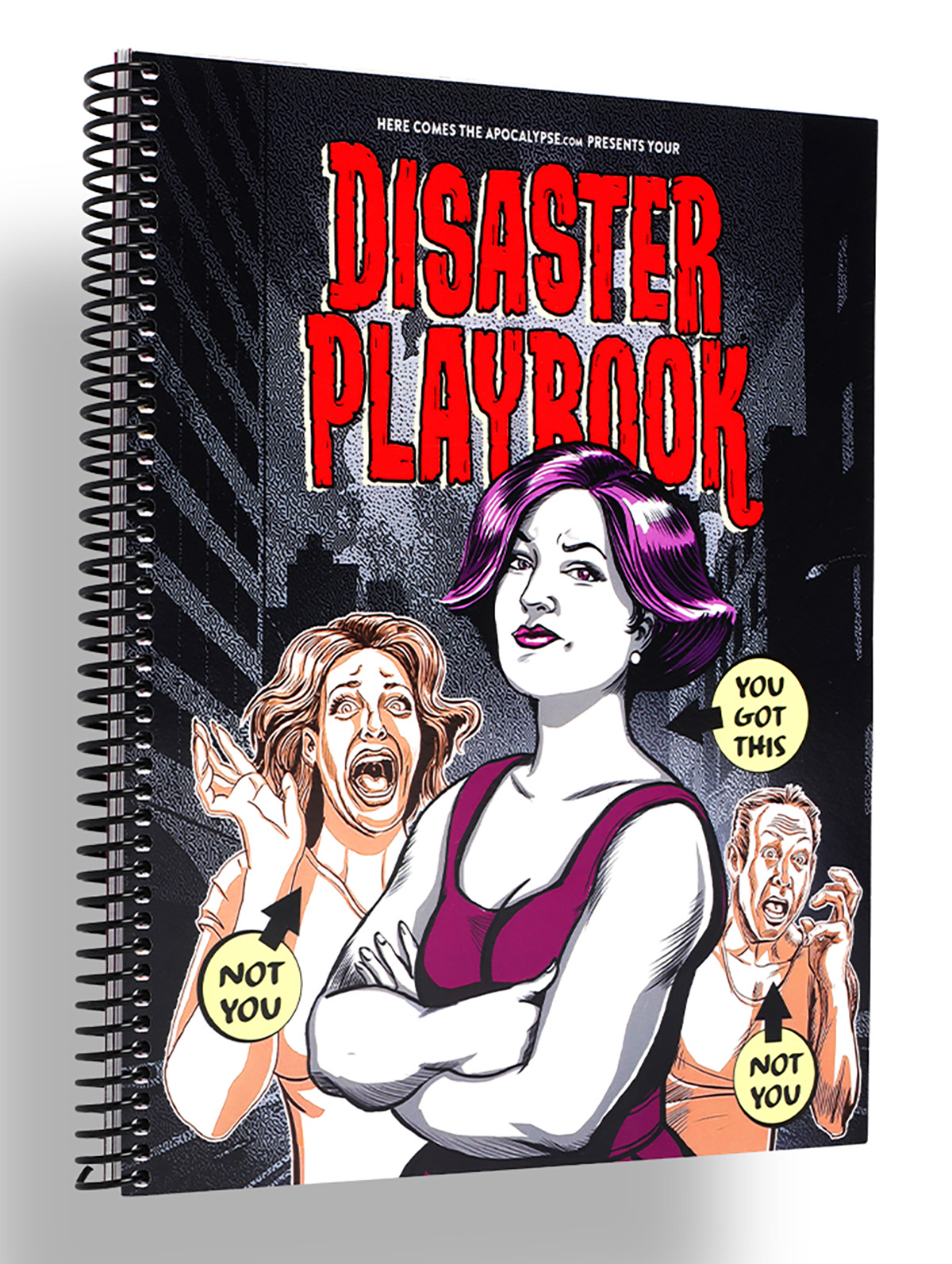
Wickless Vulva Candles
Bold, luxurious, and completely flame-free, CTOAN’s wickless candles melt from beneath on a warmer, releasing subtle, sophisticated fragrances, like sandalwood or lavender. The vulva-shaped wax adds a playful, provocative element to any space –perfect for a bedroom, living room, or anywhere you want elegance with an edge. A gift that celebrates form, intimacy and self-expression, no fire required. $39, CTOANCO.com
Villeroy & Boch Royal Classic Christmas Collection
Every meal is a mini celebration – with whimsy at every place setting – in Villeroy & Boch’s Royal Classic festive dinnerware collection that hits all the right notes. Made from premium German porcelain, it features nostalgic little toys, nutcrackers, and rocking horses in delicate relief, giving your holiday spread a playful but refined twist. Dishwasher- and microwave-safe, it’s luxe without the fuss. Gift a piece to a special someone, or start a collection they’ll use (and show off) for years to come. $22-$363, Villeroy-Boch.com
Greenworks Electric Lawnmower
You a ’hood queen who considers lawn care performance art – or just wants to rule the cul-de-sac in quiet, emission-free glory? Greenworks’ zero-turn electric mower has the muscle of a 24-horsepower gas engine but none of the fumes, drama or maintenance. Six 60V batteries and a 42-inch deck mean you can mow up to two-and-a-half acres on a single charge – then plug in, recharge, and ride again. It’s whisper-quiet, slope-ready, and smooth enough to make you wonder why you ever pushed anything besides your queer agenda. The perfect gift for the homeowner who loves sustainability, symmetry, and showing off their freshly striped yard like that fresh fade you get on Fridays. $5,000, GreenworksTools.com
Molekule Air Purifier
For the friend who treats their space like a sanctuary (or just can’t stand sneezes), the Molekule Air Pro is magic in motion. Covering up to 1,000 square feet, it doesn’t just capture allergens, VOCs, and smoke – it destroys them, leaving your air feeling luxury-clean. FDA-cleared as a Class II medical device, it’s serious science disguised as modern design. Gift it to your city-dwelling, pet-loving, candle-burning friend who likes their living room as pristine as their Instagram feed. $1,015, Molekule.com
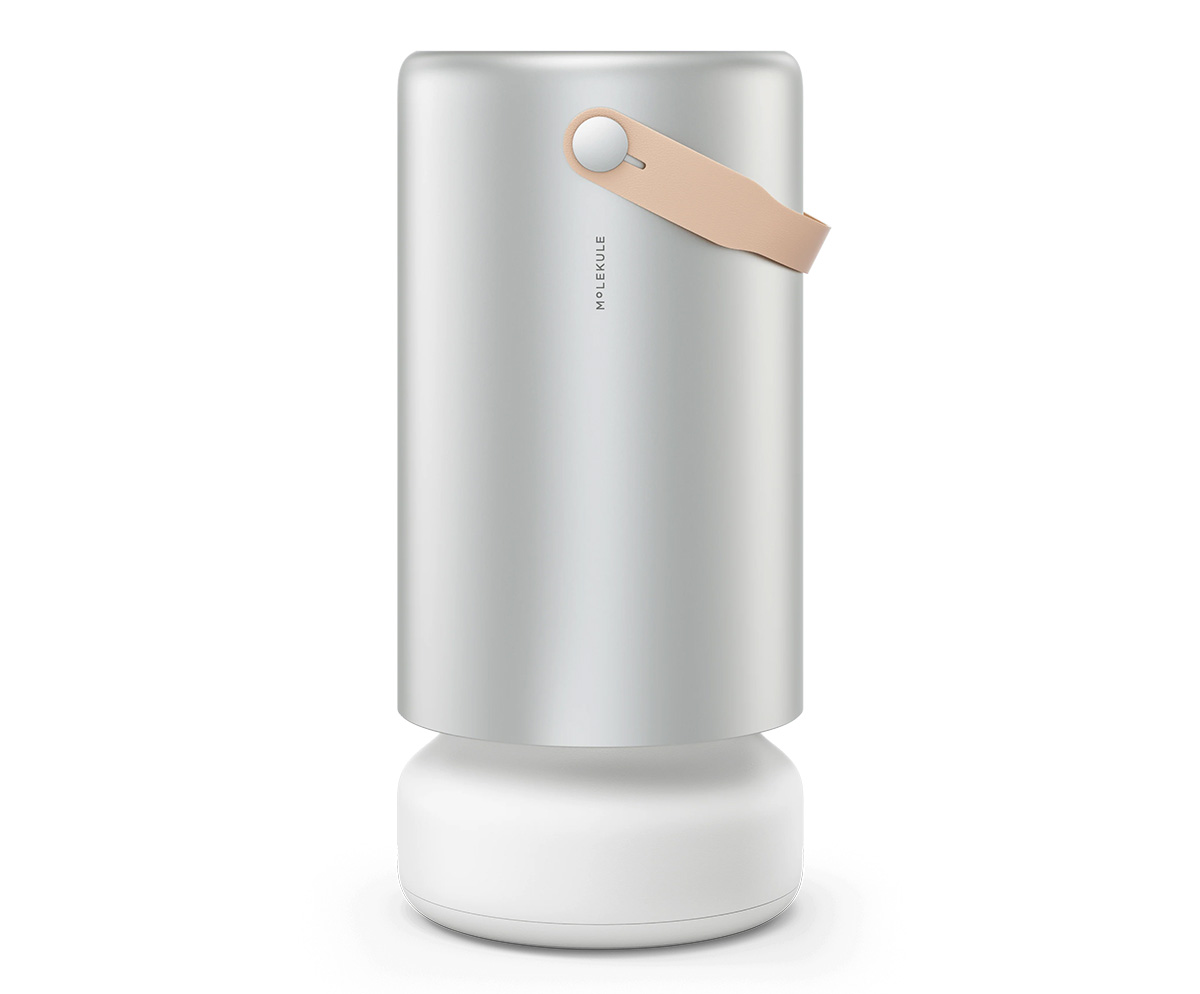
Cipriani Prosecco Gift Set
Effervescent with stone-fruit sweetness and a touch of Italian flair, the Cipriani Bellini & Prosecco gift set brings brunch-level glamour to any day of the week. The Bellini blends rich white-peach purée with sparkling wine, while the dry ’secco keeps things crisp and celebratory. Pop a bottle, pour a flute, and suddenly winter weeknights feel like a party – even with your pants off. $36, TotalWine.com
Woo(e)d Cologne
British GQ recently crowned Woo(e)d by ALTAIA the “Best Date Night Fragrance,” and honestly, they nailed it. Confident without being cocky – smoky gaïac and Atlas cedarwood grounds the room while supple leather and spicy cardamom do all the flirting – it’s a scent that lingers like good conversation and soft candlelight. Gift it to the one who always turns heads – or keep it for yourself and let them come to (and then on) you. $255, BeautyHabit.com
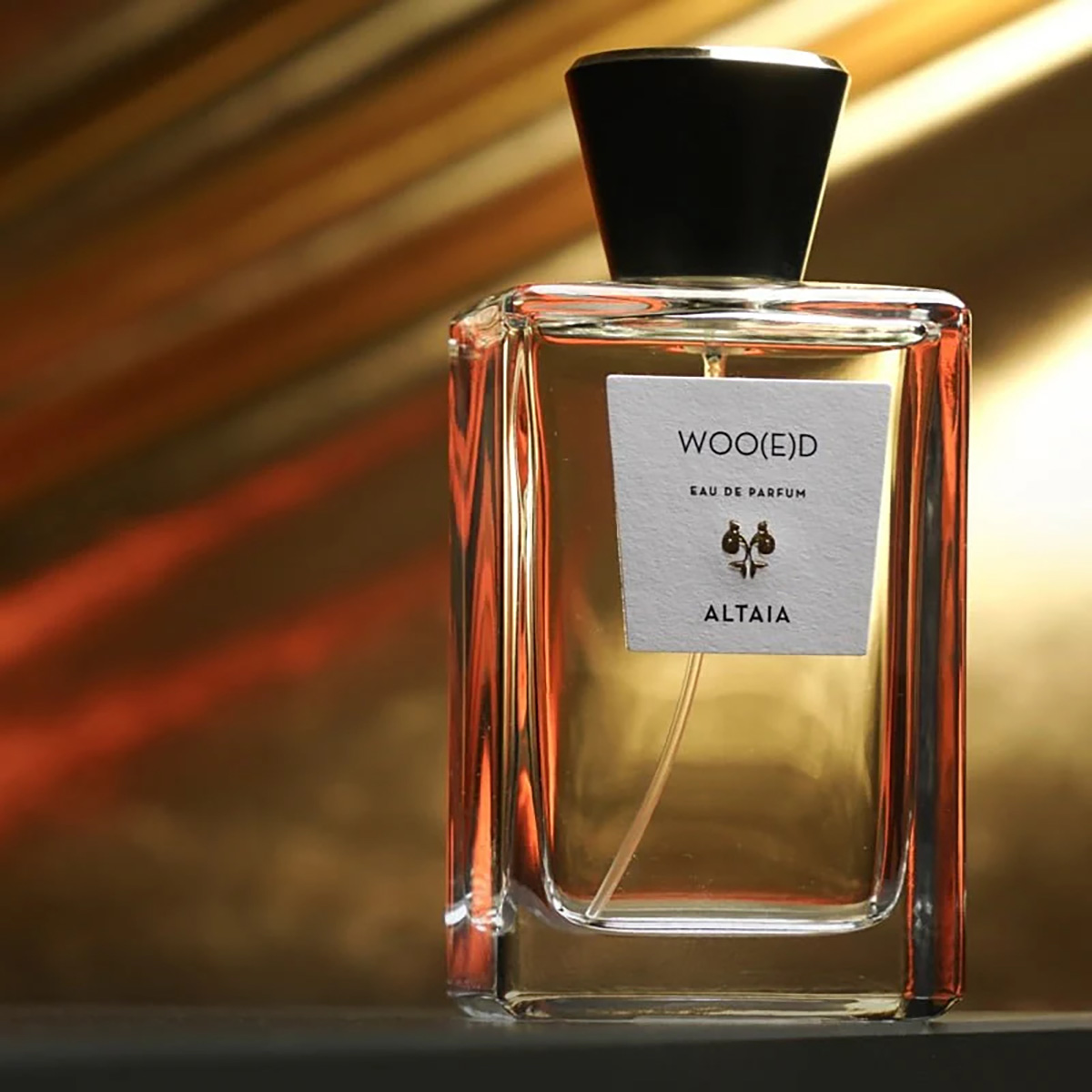
Lococo Cocoa Kit
Keep the run-of-the-mill mugs in the cabinet this Christmas and pull out Lococo’s handcrafted Oaxacan versions that demand you slow down and sip like it matters. Paired with a wooden scoop, rechargeable frother, and Lococo’s signature spice hot-chocolate blend (vegan, gluten-free, with adaptogenic mushrooms), this holiday kit turns Mexi-cocoa into a mini ritual you’ll look forward to. Perfect for anyone who loves a little indulgence with a side of ¡A huevo! energy.
Manta Sleep Mask
Total blackout, zero pressure on the eyes, and Bluetooth speakers built right into the straps, this ain’t your mama’s sleep mask — but it could be. The Manta SOUND sleep mask features C-shaped eye cups that block every hint of light while ultra-thin speakers deliver your favorite white noise, meditation, or late-night playlist straight to your ears. With 24-hour battery life, breathable fabric, and easy-to-adjust sound, it turns any bed (or airplane seat) into a five-star sleep suite. Perfect for anyone who treats shut-eye like an art form (or just wants to escape their roommate’s late-night bingin’ and/or bangin’). $159, MantaSleep.com
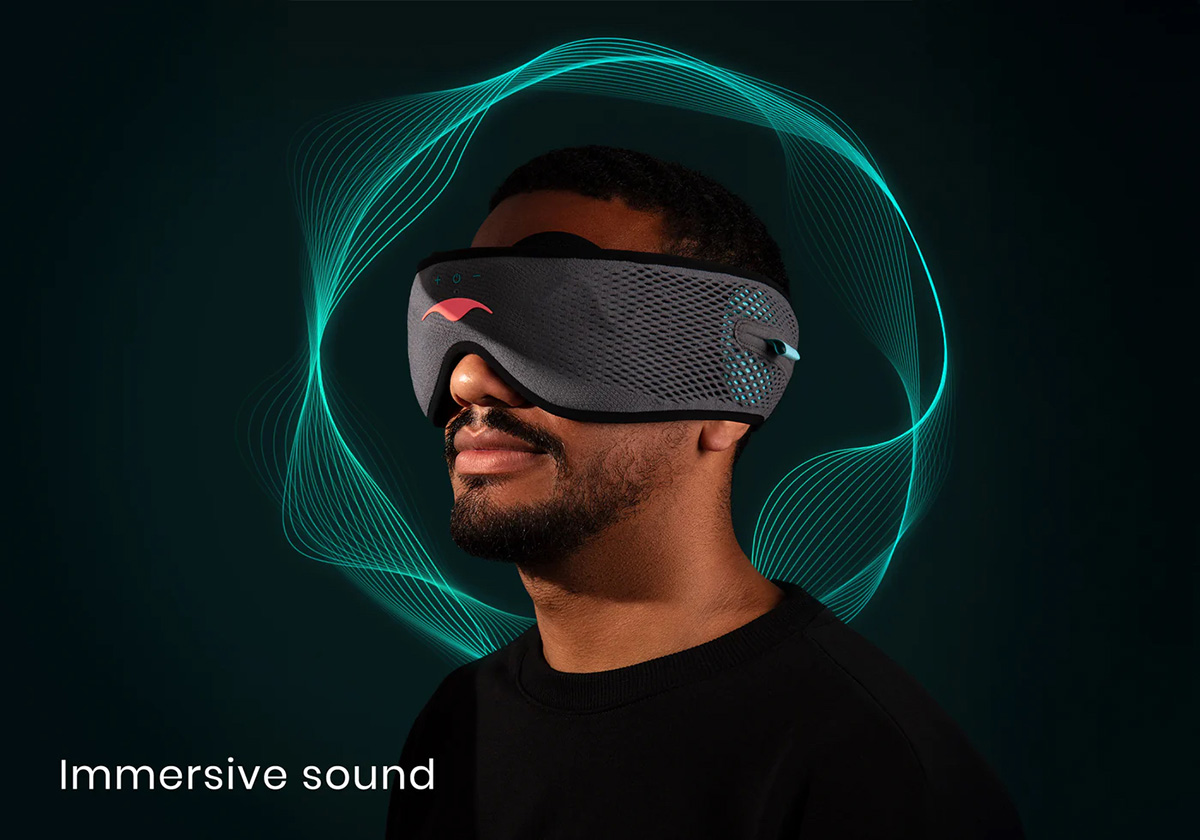
Shacklelock Necklace
Turn the industrial-chic vibe of a shackle into a sleek statement. Mi Tesoro’s platinum-plated stainless-steel necklace sits on an 18-inch wheat chain, featuring a shackle-style latch pendant that’s waterproof, tarnish-free, and totally fuss-les. Beyond style, it nods to a classic gesture in the queer leather community: replacing a traditional Master lock with something elegant to quietly signal belonging to someone special. Wear it solo for a minimalist edge or layer it like you mean it; either way this piece locks in both your look and your intentions. $90, MiTesoroJewelry.com
Parkside Flask Mojave Edition
Wine nights get a desert glow-up with Parkside’s limited-edition 750-milliliter all-in-one flask draped in sun-washed bronze and badland hues like sage, sand, and terracotta – with magnetic stemless tumblers that snap on for effortless shareability. It keeps your vino chilled for 24 hours, pours without drips (no tears for spilled rosé, please), and even lets you laser-engrave your own mantra or inside joke. Perfect for picnics, surprise rooftop clinks, or gifting to your favorite wine (or desert) rat. $149, HighCampFlasks.com
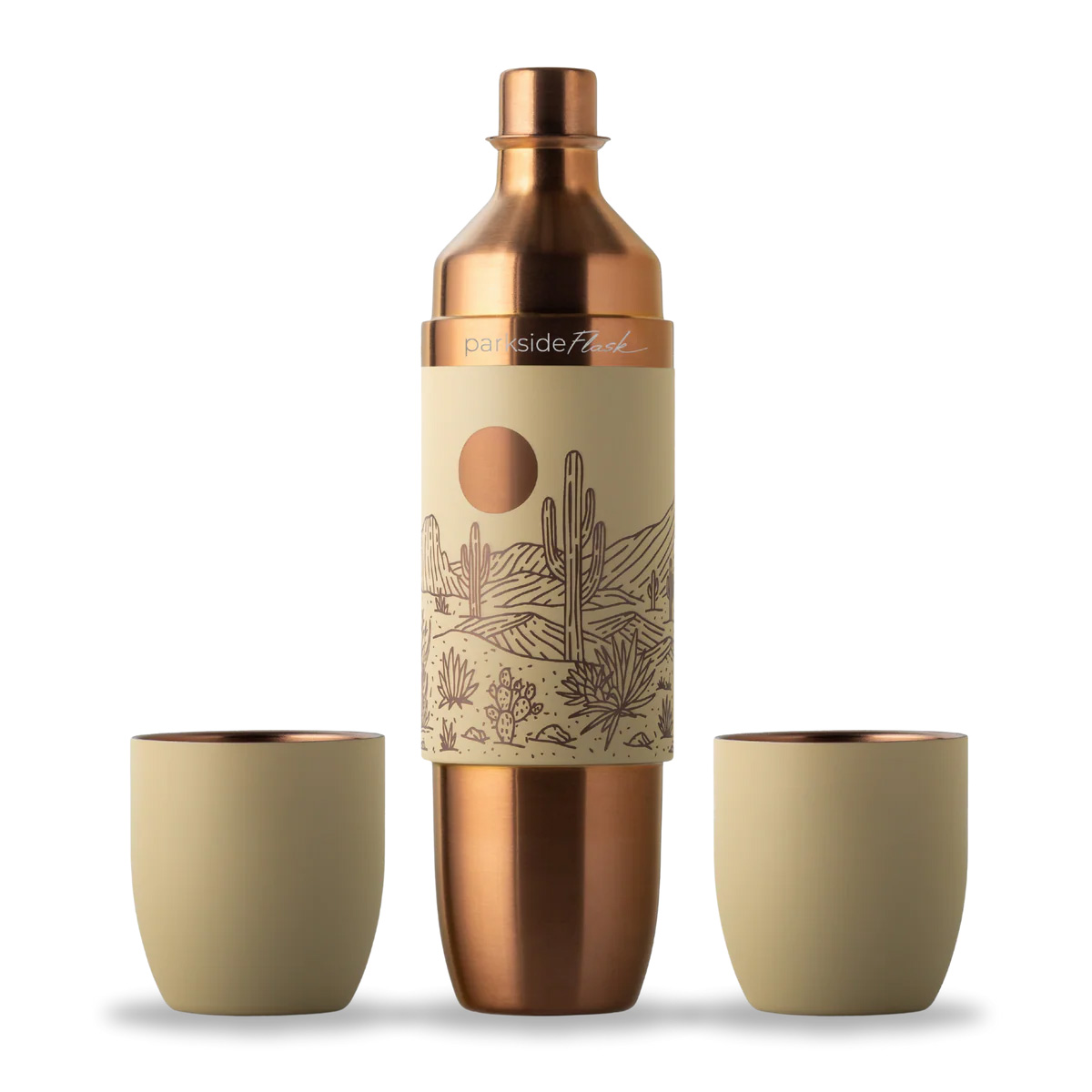
Mikey Rox is an award-winning journalist and LGBT lifestyle expert whose work has published in more than 100 outlets across the world. Connect with him on Instagram @mikeyroxtravels.
a&e features
Meet Mr. Christmas
Hallmark’s Jonathan Bennett on telling gay love stories for mainstream audiences
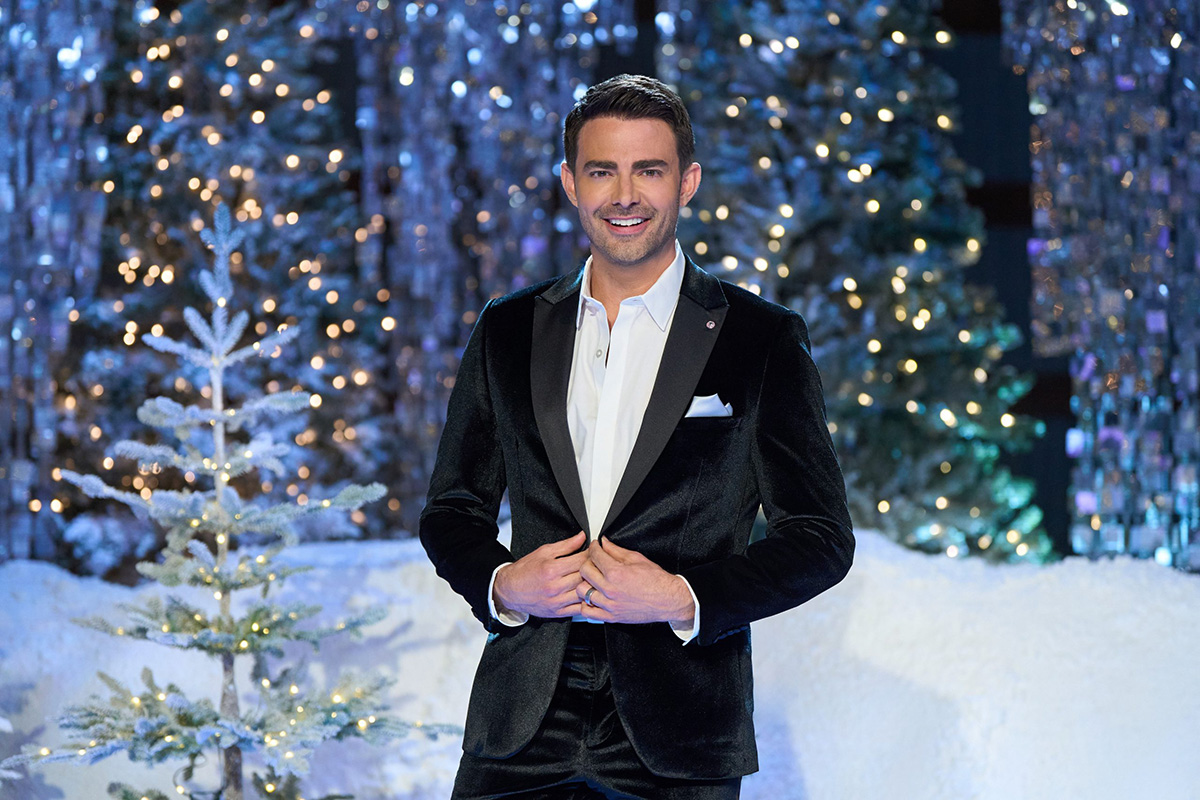
Jonathan Bennett believes there are two kinds of people in the world — those who love Hallmark movies and liars. And in Season 2 of Finding Mr. Christmas, which the Mean Girls star co-created with Ben Roy, Bennett is searching for Hallmark’s next leading man.
“It’s so fun for people because everyone in their life has someone they know that they think should be in Hallmark movies, right? The UPS driver, the barista at the coffee shop, the dentist,” Bennett says. “So we’re testing their acting abilities, we’re testing who they are, but we’re also looking for that star quality — the thing that makes them shine above everyone else. It’s almost something you can’t explain, but we know it when we see it.”
Season 2’s cast includes a former NFL player for the Green Bay Packers, a few actors, and a realtor. The 10 men compete in weekly festive-themed acting challenges, one of which included having to ride a horse and act out a scene with Alison Sweeney. The contestants were chosen from a crop of 360 potential men, and Bennett gives kudos to the show’s Emmy-nominated casting director, Lindsay Liles (The Bachelor, Bachelor in Paradise).
“She has a tough job because she has to find 10 guys that are going to be good reality television, but also have the talent to act, carry a scene, and lead a Hallmark movie eventually,” he says. To be the right fit for a Hallmark leading man, Bennett singles out five key characteristics: you have to be funny, charming, kind, have a sense of humor, and you have to do it all with a big heart.
Of course, Finding Mr. Christmas wouldn’t be Finding Mr. Christmas without its signature eye candy — something Bennett describes as “part of the job” for the contestants. “I can’t believe Hallmark let me get away with this. I dressed them as sexy reindeer and put them in harnesses attached to a cable 30 feet in the air, and they had to do a sexy reindeer photo shoot challenge,” he says with a laugh. “This season is just bigger and bolder than last. People are responding to not only all the craziness that we put them through, but also comparing and contrasting the guys in their acting scenes when we do them back-to-back.”
Season 1 winner Ezra Moreland’s career has been an early testament to the show’s success at finding rising talent. On seeing the show’s first winner flourish, Bennett says, “Now to watch him out in the world, just booking commercial after commercial and shining as an actor and a model, I think the show gave him the wings to do that. He learned so much about himself, and he took all that into his future auditions and casting. He just works nonstop. I’ve never seen an actor book more commercials and modeling gigs in my life.”
Bennett has been a star of plenty of Hallmark movies himself, including the GLAAD-award-winning The Groomsmen: Second Chances, which makes him a fitting host. Among those movies are 2020’s Christmas House, which featured the first same-sex kiss on the network and had a major impact on Bennett’s career as an openly gay man. “Hallmark’s been so great about supporting me in queer storytelling. But again, I don’t make gay movies for gay audiences. I make gay love stories for a broad audience, and that’s a huge difference, right? We’re not telling stories inside baseball that only the gay community will understand.”
He continues, “The backdrop of a Hallmark Christmas movie is very familiar to these people who watch. And so when you tell a gay love story, and you tell it no differently than a straight love story in that space, they’re able to understand. It’s able to change hearts and minds for people who might not have it in their lives.”
While Hallmark has become a major staple of Bennett’s career, he started off wanting to be a Broadway actor. And before the first season of Finding Mr. Christmas aired, Bennett took a break from TV to make his Broadway debut in Spamalot, replacing Michael Urie as Sir Robin and starring alongside Ethan Slater and Alex Brightman.
“That was my dream since I was five years old – then I booked a movie called Mean Girls, and everything kind of changes in your life. You no longer become a person pursuing Broadway, you become a part of pop culture,” Bennett recalls. “And to be honest, when I hit 40, I was like, ‘I’m probably never going to get to live that dream.’ And that’s okay, because I got to do other dreams and other things that were just as cool but different. So I honestly never thought it would happen.”
Bennett is still determined to make his way back on Broadway with the right role — he calls Spamalot the “best experience” of his life, after all — but he’s got another Hallmark show lined up with Murder Mystery House, which he co-created. The show was recently greenlit for development and intends to bring the Hallmark mystery movie to life. “It’s kind of like our version of The Traitors,” Bennett admits.
Looking back on both seasons, Bennett says that what makes Finding Mr. Christmas stand out in the overcrowded reality TV landscape is that everyone involved makes it with heart: “This isn’t a show where you’re going to watch people throw drinks in each other’s faces and get into big fights. The thing that has amazed me so much about this show, the more we’ve done it, is that every season, 10 guys come in as competitors, but they leave as a family and as brothers. That’s something you don’t get on any other network.”
Finding Mr. Christmas airs every Monday on Hallmark through December 20, with episodes available to stream on Hallmark+.

